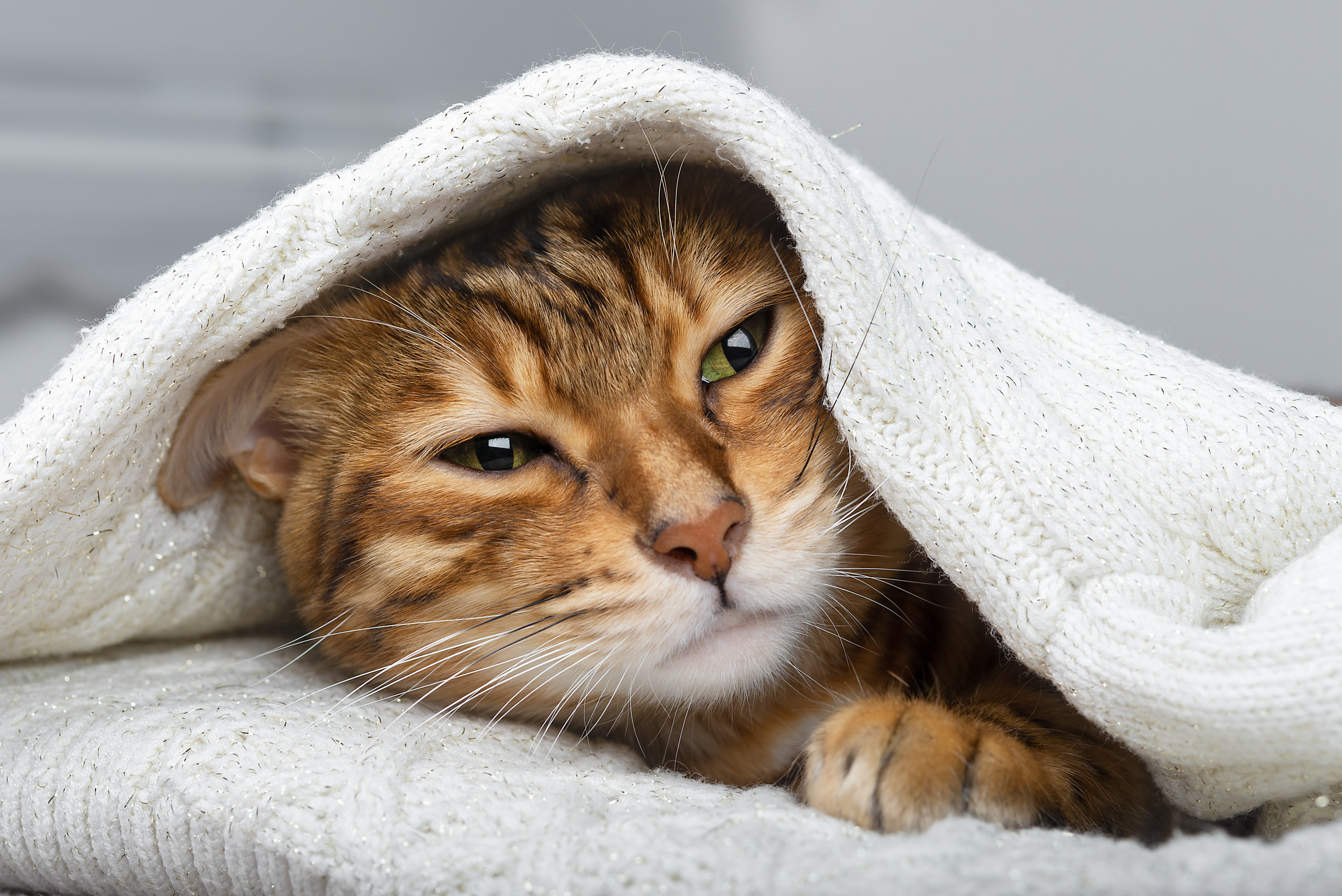
Helping your cat get a good night's sleep is essential for their overall well-being and can foster a stronger bond between you and your feline friend. Cats, like humans, require adequate rest to maintain their physical and mental health. Here are some tips to ensure your cat enjoys peaceful and restful sleep:
-
Create a Comfortable Sleeping Space : Designate a cozy and quiet area in your home specifically for your cat to sleep. Cats prefer secluded spots where they can feel safe and secure. Provide a soft and comfortable bed or blanket, preferably made of natural materials like cotton or wool. Ensure the sleeping area is away from noise and distractions, such as TVs or loud appliances, to promote a calm environment conducive to sleep.
-
Maintain a Consistent Routine: Cats are creatures of habit and thrive on routines. Try to stick to a regular schedule for feeding, playtime, and bedtime. By establishing consistency, your cat's internal clock will adapt, leading to better sleep patterns. If your cat knows that playtime and mealtime come before bedtime, they'll be more likely to wind down and relax when the time comes to sleep.
-
Engage in Play and Exercise: Encourage your cat to engage in active play during the day to expend energy. Interactive toys like feather wands or laser pointers can simulate hunting behavior, satisfying their natural instincts. Regular play sessions will help tire them out, making them more likely to sleep soundly at night. Avoid intense play right before bedtime, as it may leave your cat too wound up to settle down.
-
Provide Mental Stimulation: Keep your cat mentally stimulated during the day to prevent boredom, which can lead to restlessness at night. Puzzle toys, treat dispensers, and rotating their toys can provide mental enrichment. Mental exertion can tire your cat out, helping them feel more relaxed and ready for sleep when night falls.
-
Respect Your Cat's Sleep: Cats are crepuscular animals, meaning they are most active during dawn and dusk. Respect their natural sleep-wake cycle and avoid disturbing them during their daytime naps. If your cat naps frequently during the day, it's perfectly normal. Cats sleep in short bursts, so they can be awake for more extended periods at night. By letting them sleep when they want to, they'll be more likely to sleep through the night.
-
Avoid Feeding Before Bedtime: Try not to feed your cat a large meal right before bedtime. Like us, cats may feel uncomfortable and bloated if they eat too much before sleeping. Instead, feed them a few hours before bedtime, and if you offer a small, calming snack, opt for something light and easy to digest. Consult your veterinarian about the best feeding schedule for your cat's specific needs.
In conclusion, creating a comfortable and consistent sleep environment, engaging in play and exercise, providing mental stimulation, respecting your cat's sleep-wake cycle, and managing feeding times can greatly contribute to helping your cat sleep better. By implementing these tips, you'll contribute to your feline companion's overall health and happiness. Remember that every cat is unique, so observe your pet's behavior and adjust your approach accordingly to meet their individual needs.
